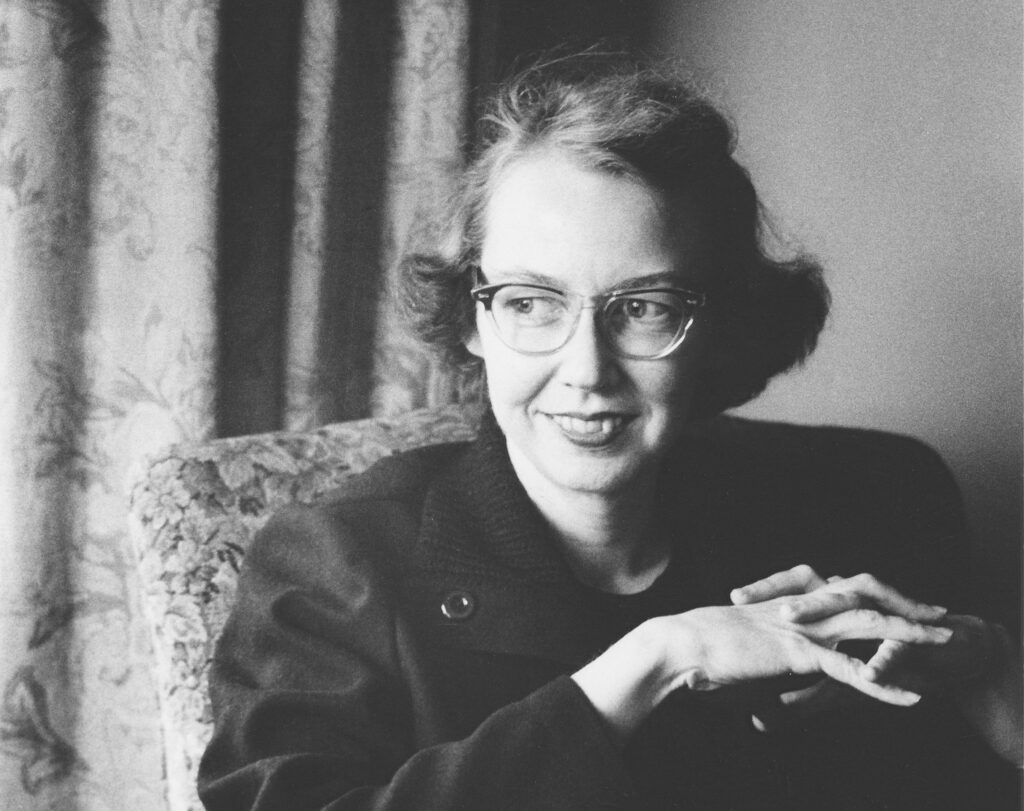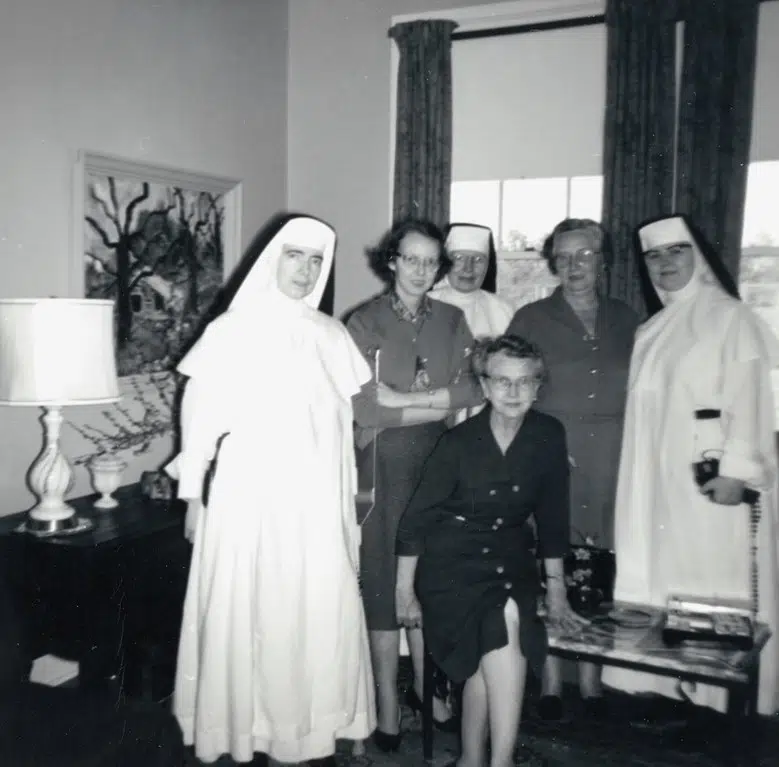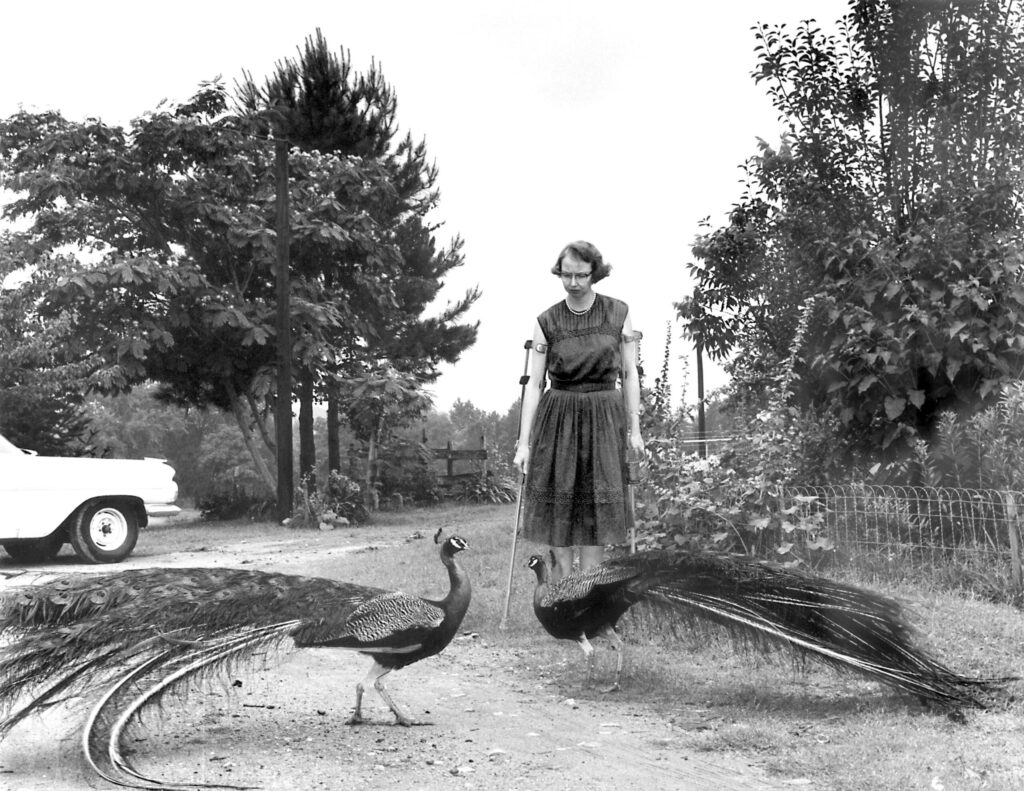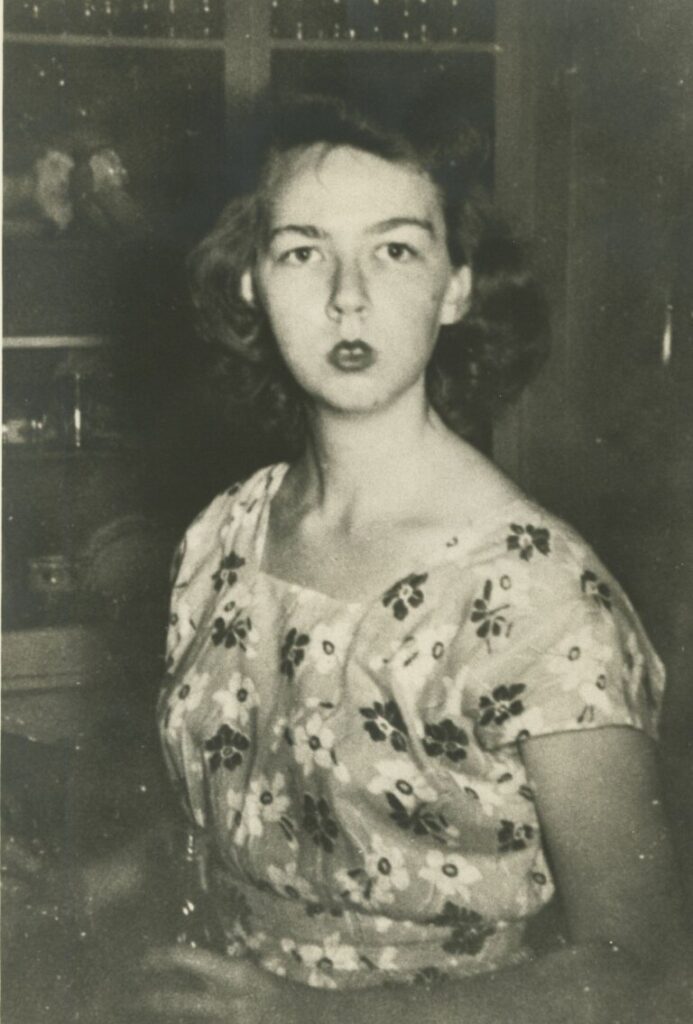

The Catholic Patriotic Minute: Flannery O’Connor
Catholics For Catholics Special Edition | August 4th, 2025
Carrying the Cross: The Life of Flannery O’Connor
Born into a culture that rejected sin, suffering, and the cross, Flannery O’Connor spent her life writing stories that opposed this modern culture. Her devotion to her Catholic faith reveals that Flannery did not take her salvation for granted, as so many other Christians do. As O’Connor once wrote, “What people don’t realize is how much religion costs. They think faith is a big electric blanket, when of course it is the cross.”

One hundred years ago, on March 25, 1925, Mary Flannery O’Connor was born in Savannah, Georgia. Descended from Irish immigrants, she was a cradle Catholic and grew up in a vibrant Catholic community, despite the majority of Southerners being Protestants. She attended Catholic schools until the age of twelve, when her father, Edward Francis O’Connor Jr., developed disseminated lupus, an untreatable disease, and died three years later. Before his death, the O’Connor family had left Savannah for Milledgeville, where Flannery attended Peabody High School and illustrated cartoons for their school newspaper. These illustrations were Flannery’s first published works. She attended Georgia College in Milledgeville and worked as the art editor and cartoonist for the college newspaper, as well as the editor of the literary quarterly and school yearbook.
On the path to becoming a renowned author, Flannery left her hometown in the South, partially due to her twenty-one-year-old self believing she could only write well in the North. She studied at the University of Iowa’s School for Writers. Here, she began her life-long calling to write short stories and started to write her first novel, Wise Blood. More importantly, she began to attend Mass daily. In 1948, O’Connor earned a spot as a writer-in-residence at Yaddo, an artist’s colony in New York, and then moved into the Connecticut home of Robert and Sally Fitzgerald, notable poet and writer respectively who were dear friends of Flannery’s, while she worked on Wise Blood. Responding to a question of what drove her to write, O’Connor answered, “[b]ecause I’m good at it,” and later she further reasoned that “[t]here is no excuse for anyone to write fiction for public consumption unless he has been called to do so by the presence of a gift.” In her letters, she consistently refers to her writing as her vocation. However, this successful beginning to Flannery’s writing career encountered a hurdle.

At the age of twenty-five in 1950, on a train ride back South to Milledgeville, Flannery endured a nearly-fatal attack of disseminated lupus, the disease from which her father died. Her lupus required Flannery to live with her mother, Regina, at the family dairy farm in Georgia. Despite her extensive solitude in her last fourteen years of life at home with her mother as her sole companion, her friend, Sally Fitzgerald, noted that Flannery did not linger in self pity. To keep up with friends, she sent them many letters, some of which are documented in the tome The Habit of Being. Rather than giving up her budding writing career as she faced the reality of an early death, she lived out her remaining days well with a thorough daily routine. Flannery woke up at six in the morning to say her prayers from the Short Breviary; drank her coffee; attended Mass at seven with her mother; wrote without interruption from nine to noon every day of the week; filled her afternoon with reading, tending to her forty peacocks, writing letters, and hosting guests; read Saint Thomas Aquinas’s writings for twenty minutes; went to sleep at nine.
Flannery’s daily life reflected her identity, which was first, a Catholic, and then a writer. She never separated one from the other. Although she did not write typical Catholic novels, her Catholic faith was at the heart of each of her stories. She wrote, “I see from the standpoint of Christian orthodoxy. This means that for me the meaning of life is centered in our Redemption by Christ and what I see in the world I see in relation to that.” O’Connor understood deeply the Catholic principle that even in the darkest of characters conversion and redemption are achievable by welcoming God’s grace.
Reading Flannery’s work with the presumption that her characters are exemplary Christians will most definitely result in gasps, confusion, and perhaps discomfort. Most of Flannery’s characters are truly grotesque, with some being thieves and hypocrites and others being con-artists and murderers. O’Connor explained that “to the hard of hearing you shout, and for the almost-blind you draw large startling figure,” and that her

stories are hard but they are hard because there is nothing harder or less sentimental than Christian realism. I believe there are many tough beasts now slouching toward Bethlehem to be born and that I have reported the progress of a few of them, and when I see these stories described as horror stories I am always amused because the reviewer always has hold of the wrong horror.
What was Flannery attempting to communicate to the “deaf and blind” through her rather shocking stories? Her message to all Christians was that our day of Judgement is coming and that we must surrender all our own “tough beasts,” that is, our vices, and accept God’s divine grace, rather than rejecting Him.
For O’Connor, the imagination of Catholic fiction writers is centered specifically on the Fall, the Redemption, and the Judgement, all of which Modernity repudiates. Although O’Connor did not view herself as an evangelizer in her writing, she did see herself as a Catholic realist and a challenger of prevalent nihilism. She simply looked at the world, observed the good and the evil, and wrote about it. According to her, a Catholic novel “represents reality adequately as we see it manifested in this world of things and human relationships.” Catholic fiction writers oppose the modern nihilistic culture by embracing objective truth and morals.
Her most well-known objection to the modern world’s treatment of Christ was at a dinner party she attended with renowned academics in New York before her diagnosis of lupus in 1950. When one of these intellectuals proclaimed that the Eucharist was a symbol, O’Connor retorted with, “[w]ell, if it’s a symbol, to hell with it.” Later, she reflected, “[t]hat was all the defense I was capable of but I realize now that this is all I will ever be able to say about it, outside of a story.” And then later, in her story, “The Temple of the Holy Ghost,” she wrote, “I believe the Host is actually the body and blood of Christ. . . . It is the center of existence for me; all the rest of life is expendable.”

By the age of thirty nine, Flannery O’Connor wrote thirty-two short stories, the most famous of these being “A Good Man Is Hard to Find.” Her posthumously-published work, Complete Stories, won the U.S. National Book Award for Fiction in 1972. She also wrote two novels, Wise Blood and The Violent Bear It Away. O’Connor wrote until her last days, leaving her third novel, Why Do the Heathen Rage?, incomplete.
As noted before, Flannery never mentioned to her friends that she felt embarrassed, angry, or unhappy about having to live mostly in isolation, unmarried and living with her mother, between the ages twenty-five and thirty-nine due to her lupus. In fact, she only mentioned the word “lonely” twice in her letters, first in regards to one of her characters and secondly in a prayer. A few weeks before her death on August 3, 1964, Flannery sent a letter to a friend that included a prayer to Saint Raphael that she would pray daily.
O Raphael, lead us towards those we are waiting for, those who are waiting for us! Raphael, Angel of Happy Meetings, lead us by the hand towards those we are looking for! May all our movements, all their movements, be guided by your Light and transfigured by your Joy. Angel Guide of Tobias, lay the request we now address to you at the feet of Him on whose unveiled Face you are privileged to gaze. Lonely and tired, crushed by the separations and sorrows of earth, we feel the need of calling to you and of pleading for the protection of your wings, so that we may not be as strangers in the Province of Joy, all ignorant of the concerns of our country. Remember the weak, you who are strong-you whose home lies beyond the region of thunder, in a land that is always peaceful, always serene, and bright with the resplendent glory of God. Amen [emphasis added].

In her physical weakness, every day, Flannery laid her loneliness and earthly sorrow at the feet of Christ and His Cross, through the intercession of Saint Raphael. She never noted her loneliness to friends and simply accepted her cross without complaint. Every day, she lived through His Fall, confronted her own self to prepare for her judgement, and hoped for redemption. On our paths to Bethlehem, imitating Flannery O’Connor’s habits of letting go of the vice in oneself, carrying one’s own cross, and praying to be transfigured in His Likeness would allow redemption and conversion to take place in our own lives.
For more Catholic Patriotic Minutes, visit CATHOLICUSA.COM
Save and Share This Catholic Patriotic Minute!
